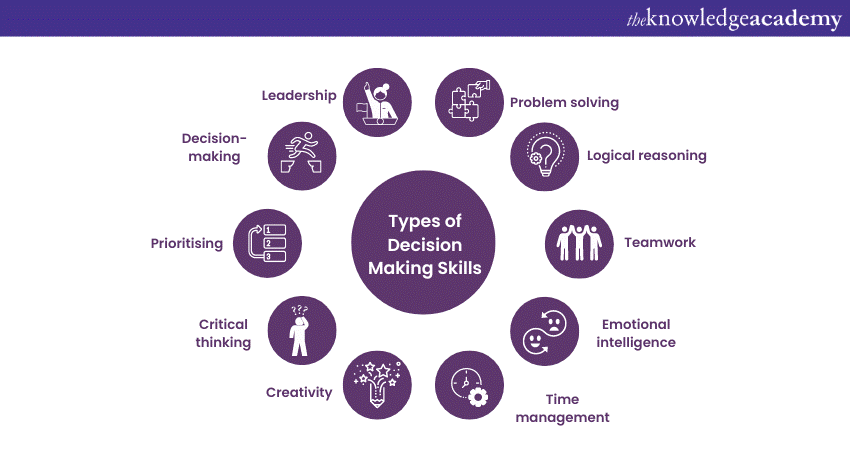Existence is filled with crossroads, where each choice we make molds our journey and influences our destiny. Whether we confront decisions in our private lives, careers, or relationships, mastering the craft of smart choice-making is crucial. This piece will explore various techniques and insights that can enable you to take improved choices, even under stress. By developing your choice-making skills, you can navigate life's challenges with confidence and clarity.
As we dig into the science behind great choices, you'll discover how to avoid typical pitfalls that result to poor decisions. From grasping the role of intuition and emotional intelligence to exploring choice-making frameworks that work, we will provide you with practical tools to refine your approach. Moreover, we will discuss the significance of awareness and critical thinking in making sound choices, ensuring you have the abilities to assess choices efficiently and choose wisely in any circumstance. Join us on this journey towards improved decision-making, and realize your potential to make choices that align with your objectives and principles.

Established Techniques for Wise Decision-Making
Making smart decisions demands a blend of tactics and self-awareness. One successful technique is to create a choice framework that guides your cognitive process. This framework can encompass defining the problem precisely, listing your choices, evaluating the benefits and drawbacks of each alternative, and contemplating the possible outcomes. By having a organized approach, you can prevent being swayed by feelings or biases that may cloud your decision-making.
Another key technique is to leverage the power of taking a moment. Frequently, taking a moment to consider before settling on a decision can significantly enhance the standard of your decision. This break allows you to consult your gut feeling while also taking into account analytical thought. Individuals who utilize this technique say experiencing more assured in their choices, as it gives them the chance to weigh their options mindfully rather than rushing into a decision.
In conclusion, integrating emotional intelligence into your decision process can produce better results. Understanding your feelings and how they influence your decisions is vital. It can assist you manage challenging situations where sentiments may be strong. By identifying emotional signals and evaluating how they influence your decisions, you can make more balanced and deliberate decisions that align with your values and future aims.
Conquering Obstacles in Making Decisions
Choosing often introduces a set of issues that can cloud our ability to decide and lead to poor decisions. One of the key problems is the excessive number of alternatives available, which can result in decision paralysis. When presented with too many choices, individuals may find it difficult to take action, worried that they might choose poorly. To tackle this, it's crucial to define well-defined criteria for considering choices and limit options to what's genuinely relevant, thus simplifying the process of making decisions and diminishing burden.
Another significant issue is the psychological factors of decisions. how to make decisions faster of making a mistake can lead to stress and anxiety, which leads individuals to hesitate or avoid decisions completely. Cultivating emotional intelligence can play a crucial role here. By recognizing and regulating our emotions, we can arrive at more logical judgments and remain focused on the data instead of getting distracted by concerns. Additionally, applying mindfulness strategies can enhance our focus, enabling us to tackle choices with a more composed mindset.
In conclusion, the social dynamics surrounding the decision-making process can also introduce complexities. Whether in group settings or when considering the opinions of colleagues, the desire for consensus can hinder decisive action. To overcome this challenge, it's essential to create an atmosphere that encourages open discussion while also honoring individual input. Utilizing systematic approaches to decision-making can facilitate collaboration and help groups come to an agreement more quickly without compromising the quality of the decision. By tackling these obstacles head-on, individuals can develop their ability to make decisions and achieve more successful outcomes.
The Role of Intuition and Feelings in Decisions
Intuition often plays a significant role in decision-making, serving as an internal compass that guides people based on their backgrounds and instincts. When faced with choices, many find themselves relying on intuitive impressions, which can be extremely valuable. This intuitive response is a product of subconscious processing, drawing from previous events, information, and emotional responses. Understanding when to trust this intuition can enhance the process of making decisions effectiveness, especially in circumstances lacking clear data.
Feelings also greatly influence the choices we make. While some individuals may strive to approach choices with a purely logical mindset, feelings can distort our judgments, often leading us to favor immediate feelings over long-term gains. Recognizing how emotions affect the making of choices can aid in creating a more equitable method. For example, nervousness may lead to avoidance, while confidence can spur action. Cultivating emotional awareness allows individuals to navigate these interactions and make decisions aligned with their principles and objectives.
Ultimately, successful choice-making involves a subtle interplay between intuition and feelings. Striking the right balance can lead to more thoughtful and satisfying choices. By integrating intuitive insights with emotional intelligence, individuals can cultivate a holistic decision-making framework that resonates with both their instincts and reason. This integration not only fosters better outcomes but also builds resilience in the face of complex situations, enabling people to embrace the complexities of decision with greater assurance.
